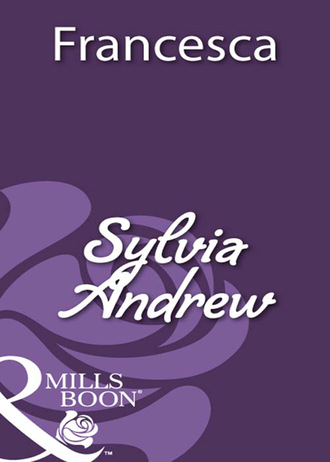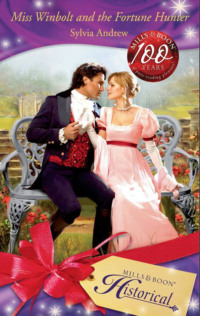
Полная версия
Francesca

“Have you forgotten the circumstances of our previous acquaintance?”
“Why, yes, of course!” Marcus replied.
Francesca, the wind taken somewhat out of her sails, stared at him.
“I thought that would please you. You said you wished me to forget the lot,” he said earnestly.
Francesca pressed her lips together firmly. He would not make her laugh; she would not let him—that was how it had all started last time.
And this man had a talent, it seemed, for reaching that other Francesca of long ago. She must regain control of her emotions. She must!
Francesca
Harlequin® Historical
MILLS & BOON
Before you start reading, why not sign up?
Thank you for downloading this Mills & Boon book. If you want to hear about exclusive discounts, special offers and competitions, sign up to our email newsletter today!
SIGN ME UP!
Or simply visit
signup.millsandboon.co.uk
Mills & Boon emails are completely free to receive and you can unsubscribe at any time via the link in any email we send you.
SYLVIA ANDREW
taught modern languages for a number of years, ultimately becoming vice-principal of a sixth-form college. She lives in Somerset, England, with two cats, a dog and a husband who has a very necessary sense of humor and a stern approach to punctuation. Sylvia has one daughter living in London, and they share a lively interest in the theater. She describes herself as an “unrepentant romantic.”
SYLVIA ANDREW
Francesca

Available from Harlequin® Historical and SYLVIA ANDREW
*Lord Calthorpe’s Promise #142
*Lord Trenchard’s Choice #148
*Colonel Ancroft’s Love #159
A Very Unusual Governess #790
The Bridegroom’s Bargain #814
Eleanor #232
Francesca #266
DON’T MISS THESE OTHER NOVELS AVAILABLE NOW:
#955 THE NOTORIOUS MR. HURST—Louise Allen
Lady Maude Templeton has turned down many proposals, with her heart set on one man—sexy, talented theater owner Eden Hurst. He doesn’t believe in love, but Maude is determined to make Eden her own. Society is about to see she can be just as shocking as her Ravenhurst friends when she puts her mind to it!
The latest thrilling installment of Louise Allen’s Those Scandalous Ravenhursts
#956 SIERRA BRIDE—Jenna Kernan
Sam Pickett is rich, powerful and used to getting his way. So he is baffled when stunning Kate Wells isn’t remotely interested in becoming his latest plaything—despite the fact that she’s poor, with an aunt and blind sister to support. Since striking it rich, Sam has felt a troubling emptiness and knows that his money can never fill the hole in his life where Kate now belongs….
He’ll have the only woman he wants!
#957 THE VISCOUNT’S KISS—Margaret Moore
When Lord Bromwell meets a young woman on the mail coach to Bath, he has no idea who she is—until after they have shared a soul-searing kiss! The nature-mad viscount isn’t known for his spontaneous outbursts of romance—and the situation isn’t helped by the fact that the woman he is falling for is a runaway….
The Viscount and the Runaway
#958 REYNOLD DE BURGH: THE DARK KNIGHT—Deborah Simmons
Tall, dark and handsome, Reynold de Burgh is nonetheless wary of the opposite sex—until he meets beautiful, young Sabina Sexton! That innocent Sabina fearfully begs his help to fight the “beast” terrorizing her village only makes the brooding knight more desirous of her.
The last bachelor of the de Burgh dynasty is single no longer!
#265 MARRYING CAPTAIN JACK—Anne Herries
Lucy Horne is excited about her first Season. But despite being the belle of every ball, she can’t seem to quell her feelings for a man she has met only once before—the enigmatic and dashing Captain Jack.
He must clear his name to claim his bride
Contents
Chapter One
Chapter Two
Chapter Three
Chapter Four
Chapter Five
Chapter Six
Chapter Seven
Chapter Eight
Chapter Nine
Chapter Ten
Chapter Eleven
Chapter Twelve
Chapter Thirteen
Chapter Fourteen
Chapter Fifteen
Epilogue
Chapter One
Lightning was flickering over the hills ahead, and every now and then came a distant roll of thunder—another storm was on its way. The field workers had given up for the day and were hurrying home before the storm broke, the children clinging to their mothers’ skirts, fathers carrying the littlest ones on their shoulders. But they smiled at the shabbily dressed young woman who passed them on the outskirts of the village, and greeted her with respect.
Miss Fanny was on her own way home to the Manor, where she lived with her aunt, Miss Cassandra Shelwood. Though she was wearing an old dress and a tattered sunbonnet, though all the world knew that her mother had run off with a well-known rake and had never been seen again, all the same, Miss Fanny was the late Sir John Shelwood’s granddaughter. She and her aunt were the last of a long line of Shelwoods who had owned most of the land round about for as long as anyone could remember.
Miss Shelwood had a heart of stone—everyone was afraid of her—but Miss Fanny was usually very friendly. Today she seemed preoccupied. Perhaps what they were saying about her aunt’s health was true after all. There were long faces at the possibility, for what would happen to the estate if—when—Miss Shelwood died? It was well known that Miss Shelwood wouldn’t give her niece the time of day if she could help it. So what was going to happen to the Shelwood estate?
Francesca Shelwood had been so deep in thought that she had barely noticed the lightning and was only faintly aware of the thunder rumbling ominously round the valley. The villagers were upon her before she had noticed them. But she smiled at them as they bobbed and nodded their heads, and turned to watch them as they hurried on, anxious to reach shelter before the rain came. They would have been astonished to learn how much she envied them.
Few would claim they were fortunate. Their days were hard and long, they were under constant threat of disaster—sudden accident or illness, the failure of the harvest, the whims of a landowner, or the caprices of the weather. But they laughed and joked as they went back to their modest dwellings, and the ties of affection, of love and family, were obvious.
She would never know such ties. Nearly twenty-five years old, plain, without any prospect of fortune, and with a shadow over her birth—who would ever think of marrying her?
Now the problem of her future was becoming more urgent with every day that passed. That her aunt was seriously ill could no longer be in doubt, though this was never admitted openly at Shelwood. Miss Shelwood refused to discuss the state of her health with anyone, least of all with her niece. But her attacks had been getting worse and more frequent for months, and yesterday’s had been the worst yet, though no one dared dispute Miss Shelwood’s assertion that it was simply a result of the excessive heat.
Francesca sighed. Years ago, when she had first come to Shelwood as a bewildered child, snatched away from everything she loved, she had looked to her aunt Cassandra, her mother’s sister, for consolation. What a mistake that had been! How often she had been snubbed, chastised, ignored, before she finally realised the harsh truth. Her aunt disliked her, and wanted as little as possible to do with her. Why this was so she had never been able to fathom. As a child she had asked her grandfather, but he had merely said that she was too young to understand. She had even screwed up her courage one day and had asked her aunt directly.
But Miss Shelwood had given Francesca one of her cold stares and replied, “A stupid question, Fanny! How could anyone like such a plain, naughty, impertinent child?’
One of the older servants, who was now dead, had once said cryptically, ‘It’s because you’re your mother’s daughter, Miss Fanny. Miss Cassandra never wanted you here. It was the master who insisted. You can understand it, though.’ And she had then maddeningly refused to say anything more.
It had not been so bad while Grandfather was alive. He had loved her in his fashion, had tried to make up for the lack of affection in his elder daughter. But he had been an old man, and since his death Aunt Cassandra’s animosity had seemed to increase—or at least become more obvious. Francesca knew that only her aunt’s strong sense of duty persuaded her to give her niece a home, for she had been told so soon after her grandfather’s funeral. She had been eleven years old at the time, and had been very surprised to receive a summons to her aunt’s room. The scene was still bitterly vivid, even after all these years…
‘I have something to say to you.’
Francesca was frightened of her aunt. She looked like a great crow, perched behind the desk, hair scraped back under a black lace cap, hooded dark eyes, black dress, black shawl…And, though her aunt was motionless, the child could sense a seething anger behind the still façade. There was a chair in front of the desk, but Francesca knew better than to sit down without an invitation, so she remained standing.
‘Mr Barton has been acquainting me with the terms of your grandfather’s will.’
Francesca shifted uneasily and wondered what was coming. Mr Barton was the Shelwood family lawyer, and Aunt Cassandra had been closeted with him all day after the funeral, and most of the day after. What was her aunt going to do about her? Was she going to send her away—to school, perhaps? She rather hoped so—it could hardly be worse than staying alone at Shelwood with her aunt. Her hopes were soon dashed, however.
‘Your grandfather has left you a sum of money, the interest on which will provide you with a small allowance—enough to pay for clothes and so on. It is not intended for school fees, since he wished you to remain at Shelwood for the time being. I have been asked to give you a roof over your head during my lifetime, and will obey my father’s wish. You have, after all, nowhere else to go.’ Her tone made it clear how much she regretted the fact.
‘Perhaps I could go back to St Marthe?’
‘That is out of the question. There is no place for you there. You will remain here.’
The young Francesca had looked with despair on the prospect of the future stretching out in front of her, alone at Shelwood with Aunt Cassandra. She offered another solution. ‘I might marry someone, Aunt—as soon as I am old enough.’
‘You might, though that is rather unlikely…’
Francesca’s lips twisted in a bitter little smile at the memory of what had followed. Her aunt had gone on to make it clear just why marriage for Francesca was practically out of the question.
‘Very unlikely, I should say, in view of your history.’
‘My history?’ Francesca cast her mind over her various small misdemeanors and found nothing in them to discourage a suitor. ‘What have I done, Aunt Cassandra?’
‘It is not what you have done.’ She paused, and there was a significant silence. Francesca felt something was required of her, but what?
‘Is there something I should have done and haven’t?’ she asked. She knew that this, too, was frequently a source of dissatisfaction.
Miss Shelwood’s expression did not change, but Francesca shivered as she waited for her aunt to speak. Finally, she said, ‘It has nothing to do with your activities. The damage was done before you were even born. Did your grandfather not tell you about it in all those cosy little chats you had with him? When he talked to you about your mother?’
‘I…I don’t think so. He was often sad when he talked about her. He said he was sorry he never saw her again before she died.’
‘He was always very fond of her.’
‘He said she was beautiful—’
‘She was quite pretty, it is true.’
‘Everyone who met her loved her—’
‘She knew how to please, certainly.’
‘He used to tell me stories about when she was a little girl. She used to laugh a lot, he said. And she did.’ Francesca was so nervous that the words came tumbling out. Normally she would have been silent in her aunt’s presence. ‘I remember her laughing, too. She used to laugh a lot when we all lived together on St Marthe. She and Maddy used to laugh all the time.’
‘Maddy?’
‘My…my nurse. The one who brought me here. The one you sent away.’
‘The native woman.’
‘Maddy was a Creole, Aunt Cassandra. She and Mama were friends. I loved them both. Very much.’
‘A most unsuitable woman to have charge of you. Your grandfather was right to get rid of her. So your mama laughed on St Marthe, did she? I am surprised. But then she always found something to amuse her. I daresay it amused her to run off with your father. Whether she was quite so amused when you were born, I do not know. You see, Fanny…’ Miss Shelwood paused here as if she was wondering whether to go on. Then her lips tightened and she said slowly, ‘Tell me your name.’
Francesca wondered why her aunt should make such a strange request, but she took a deep breath and answered quietly, ‘Francesca Shelwood.’
This time the pause was even longer. ‘Fanny Shelwood,’ said Miss Shelwood in a voice which boded no good for Francesca. ‘Fanny. Not…Francesca. Francesca is a ridiculously pretentious name. An absurd name for such a plain child.’
Francesca remained silent. This was an old battle, but, though everyone else now called her Fanny, she would remain Francesca in her own mind. Her mother—the mother she only dimly remembered—had called her Francesca, and she would never give it up. Her aunt waited, then went on, ‘Where did the name, Fanny Shelwood, come from?’
‘You said I had to be called Fanny, Aunt Cassandra.’
‘Are you being deliberately obstructive, Fanny, or simply very stupid? I refer to your surname.’
‘Grandfather said I was to be a Shelwood. After I came here.’
‘Quite so. Have you never wondered why?’ The little girl had been pleased that her grandfather wanted to give her his name. It made her feel more wanted, more as if she belonged. She had accepted it, as she had accepted everything else. She had never questioned his reasons. She shook her head.
‘It was because, Fanny, as far as we could tell, you had no other name to call yourself.’
‘I…I don’t know what you mean, Aunt Cassandra. I was called Francesca Beaudon at home on St Marthe.’
‘Francesca…Beaudon.’ Her aunt’s lip curled as she pronounced the name. ‘What right had you to such a name, pray?’
Francesca was completely puzzled. What did her aunt mean? She shook her head. ‘I…I don’t know. Because Papa’s name was Beaudon?’
Miss Shelwood leaned forward. ‘You had no right whatsoever to the name of Beaudon, Fanny Shelwood! None at all! Your father’s name is not for such as you. Richard Beaudon never married your mother!’
‘Of course Papa and Mama were married!’ cried Francesca in instant and scornful repudiation. What did this woman know about life on St Marthe? ‘Of course they were married,’ she repeated more loudly. ‘Everyone called Mama Lady Beaudon.’
‘Do not raise your voice to me, Fanny. I will not have it!’
There was a silence while Francesca wrestled with her sense of anger and outrage. Finally she muttered, ‘They were married. It’s not true what you say!’
‘Are you daring to doubt my word?’ A slight pause, then, ‘You must accept it, I’m afraid. And, unless you learn to control your feelings better, I shall wash my hands of you, and then where would you be? You might well go the way your unfortunate mother went—with disastrous consequences to herself and you.’
‘It isn’t true,’ said Francesca doggedly. She sounded brave, but deep down she felt a growing sense of panic. She was not sure of the exact significance of what her aunt was saying, but there was nothing good about it. There was a girl in the village who had a baby though she wasn’t married. Everyone was very unkind to her and called her names. They called the baby names, too. It was impossible that her darling mama had been like Tilly Sefton! ‘It’s not! It’s not!’ she said, her voice rising again.
Miss Shelwood said sharply, ‘Do stop contradicting me in that ridiculous way! What does a little girl like you know about such things? People called your mother “Lady”—’ Aunt Cassandra’s voice dripped contempt ‘—“Lady Beaudon”, because they did not wish to offend. It was merely a courtesy title!’
When Francesca remained silent she went on, ‘Deceive yourself if you wish—but tell me this if you can, Fanny. What happened after your mother died? Did your father keep you by him, as any real father would? He did not. He packed you off to England as soon as he could and we, your mother’s family, were more or less forced to give you a home and a name! And what have you heard from your father since you left the West Indies? Nothing! No visits, no letters, no money, no gifts—not even on your birthday. Why is that, Fanny?’
Once again Francesca was silent. She had nothing to say in defence of herself and her father. She had been hurt that she never heard anything from him, had tried to find out why, but her grandfather had always refused to mention the Beaudon name.
Satisfied that she had made her point, Miss Shelwood went on, ‘So you see, Fanny, a marriage is most unlikely for you, do you not agree? What have you to offer a respectable man? A girl without fortune, without name and—you have to admit that you are hardly a beauty. But you may stay here with me as long as I am alive.’
Even fourteen years later, Francesca still resented the cruel manner in which her aunt had told her of her situation. It had been like crushing a butterfly. For months afterwards she had cried herself to sleep or lain awake, thinking of her life with Maddy and her mother in the West Indies, trying to remember anything at all which might contradict what her aunt had said. But she had found nothing.
Her father had always been a dim figure in the background, especially after Mama had fallen ill and most of her time had been spent in the pretty, airy bedroom with fluttering white curtains and draperies. It was Maddy who had been the child’s companion then, Maddy who had sworn never to leave her young charge.
But, of course, Maddy had been forced to go when Aunt Cassandra dismissed her. Aunt Cassandra, not Grandfather. Francesca’s heart still ached at the memory of their parting. She had clung to Maddy’s skirts, as if she could keep her nurse at Shelwood by physical force, had pleaded with her grandfather, even with her aunt. But Maddy had had to go.
As Francesca grew older, she came to accept the hard truth about her birth, if only because she could not see why her aunt should otherwise invent a tale which reflected so badly on the Shelwood name. The rest of it—that she was poor and plain—was more easily accepted. It wasn’t just what her aunt said—everyone seemed to think that she was very like Miss Shelwood, who was tall, thin and pale, with strong features.
Francesca, too, was tall, thin and pale, and though she didn’t have the Shelwood eyes—the Shelwood eyes were dark brown, and hers were a greyish-green—her hair was very much the same colour as her aunt’s, an indeterminate, mousy sort of blonde. How Francesca wished she had taken after her small, vivacious mother, with her rich golden curls and large pansy-brown eyes, who had always been laughing!
A sudden rumble of thunder quite close brought Francesca back with a start to the present. She glanced up at the sky. The clouds were gathering fast—which direction were they travelling? Then a horn blared behind her and she nearly leapt out of her skin. She turned and was horrified to see a chaise and four bearing down on her at speed. She leapt for her life to the side of the road, but lost her balance, skidded into the ditch, and ended up in nettles, goose grass and the muddy water left over from the previous night’s rain.
The chaise thundered past, accompanied by shouts from its driver as he fought to bring his team to a halt. At first she made no attempt to move, but lay there in the ditch, content to recover her breath and listen to crisp orders being issued some way down the road. It had taken a while to stop the chaise. Footsteps approached the ditch where she lay and came to a halt beside her.
‘Are you hurt?’ Betsy’s old sunbonnet had tipped forward and covered her eyes, so that all she could see when she looked up was a pair of long legs encased in buckskins and beautifully polished boots.
‘You were well clear of the coach, so don’t try to pretend. Come, girl, there’s sixpence for you if you get out of that ditch and show me that your fall hasn’t done any harm. Take hold of my cane.’
That voice! It was cooler and more authoritative than she remembered. And the undercurrent of mockery was new. But the rich timbre and deep tones were still familiar. Oh, it couldn’t be, it couldn’t! Fate would not be so unkind. Francesca shut her eyes and fervently hoped that memory was playing her false. Then the end of an ebony cane tapped her hand, and she grasped it reluctantly. One heave and she was out of the ditch and standing on the road. An exquisitely fitted green coat and elegant waistcoat were added to her vision of the gentleman.
‘You see? You’re perfectly unharmed.’
Francesca was not reassured by these words. She listened with growing apprehension as he went on, ‘There’s the sixpence—and there’s another penny if you’ll tell us if this lane leads to Witham Court. We appear to have taken a wrong turning.’
Francesca swallowed, tried to speak and uttered instead a strangled croak. Fate was being every bit as unkind as she had feared! He had not yet recognised her, but if he did…
‘What’s the matter? Cat got your tongue?’ The gentleman pulled her towards him and, before she could stop him, was running his hands over her arms and legs. ‘Yes, you’re quite sound,’ he said, drawing a large handkerchief from his pocket and wiping his fingers fastidiously on it. ‘So stop shamming—there are no more sixpences, Mary, or whatever your name is. Nothing more to be got out of me, until you tell me where Witham Court is.’ His movements had been impersonal—rather as if he were feeling the legs of a horse—but Francesca’s face flamed and she was seized with a sudden access of rage.
‘You can keep your money,’ she said, pushing her hat back from her face, and glaring at him. ‘An abject apology would be more in line, though I doubt it will be forthcoming. The last thing any of us expect is decent behaviour from the owner of Witham Court, or his guests.’
His eyes narrowed, then he said slowly, ‘I appear to have made a mistake. I took you for one of the village girls.’ He eyed her shabby dress and bonnet. ‘Understandably, perhaps. But—’ he eyed her uncertainly again ‘—it can’t be. Yet now I look…we’ve met before, haven’t we?’
‘Yes,’ said Francesca stonily, wishing she could lie.
‘Of course! You were wet then, too…we both were. Why, yes! How could I have forgotten that glorious figure…?’
He laughed when Francesca gave an involuntary gasp of indignation and then pulled himself together and looked rueful. ‘I’m deeply sorry—that slipped out. I do beg your pardon, ma’am. Abjectly.’
Francesca was unreconciled. He didn’t sound abject. ‘The details of our previous acquaintance are best forgotten, sir. All of them. And if you offer me an apology, it surely ought to be for knocking me into the ditch.’





